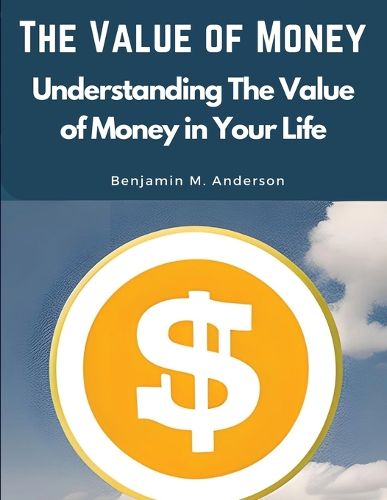The Value of Money
Benjamin M Anderson

The Value of Money
Benjamin M Anderson
This title is printed to order. This book may have been self-published. If so, we cannot guarantee the quality of the content. In the main most books will have gone through the editing process however some may not. We therefore suggest that you be aware of this before ordering this book. If in doubt check either the author or publisher’s details as we are unable to accept any returns unless they are faulty. Please contact us if you have any questions.
Benjamin Anderson, American Austrian, was among a handful of economists, led by Ludwig von Mises in his pioneering work The Theory of Money and Credit in 1912, who set out to integrate monetary theory into a general theory of value.
Anderson devoted a major portion of his great book The Value of Money, published in 1917, to a refutation of the "mechanical" quantity theory of money.
He argued that the causes and effects from which the data of the quantity equation are constructed are disaggregated and complex; whatever the correlation between the aggregate variables of the quantity equation, correlation is not causation; causation cannot be established in the equation because there are no quantitative constants in human action (in particular, velocity is not constant); the quantity theory ignores time; there is no unambiguous way to define the variables in the theory: the money stock, velocity, the quantity of goods, and the price level.
Anderson further holds that whatever true propositions the quantity theory offers can as well be deduced from a correct theory of value and that many true theories of modern economics (such as the laws of demand and supply, the theory of capitalization, and Gresham's law) are inconsistent with it.
Although some true propositions can be had from the quantity theory, not every conclusion derived from it is true. Anderson expended much effort to demonstrate that many theories constructed upon it are false.
For example, he argued that the independence between the stock of money and the quantity of goods, assumed for the purpose of reaching the conclusion that increases in the stock of money lead to proportional increases in the price level, if carried into macroeconomics has pernicious effects.
This item is not currently in-stock. It can be ordered online and is expected to ship in 7-14 days
Our stock data is updated periodically, and availability may change throughout the day for in-demand items. Please call the relevant shop for the most current stock information. Prices are subject to change without notice.
Sign in or become a Readings Member to add this title to a wishlist.


